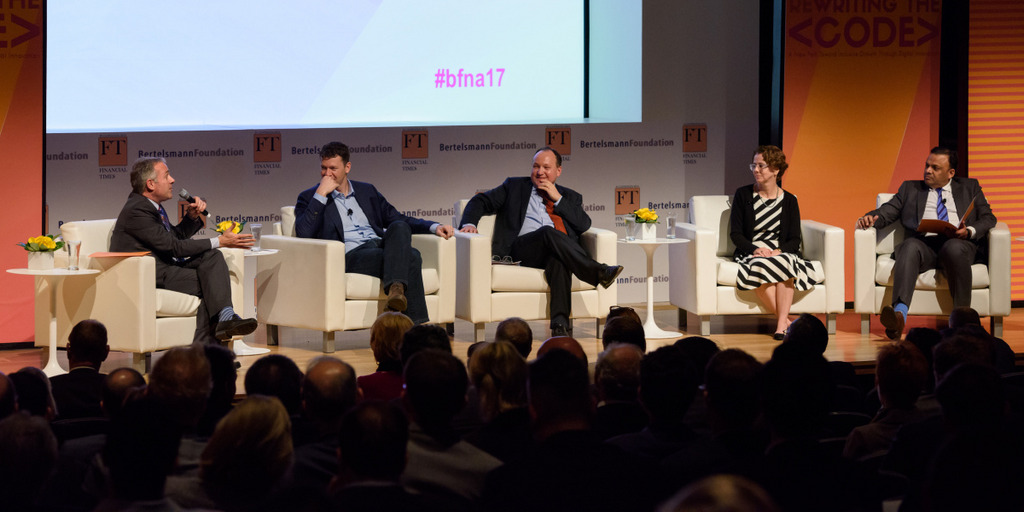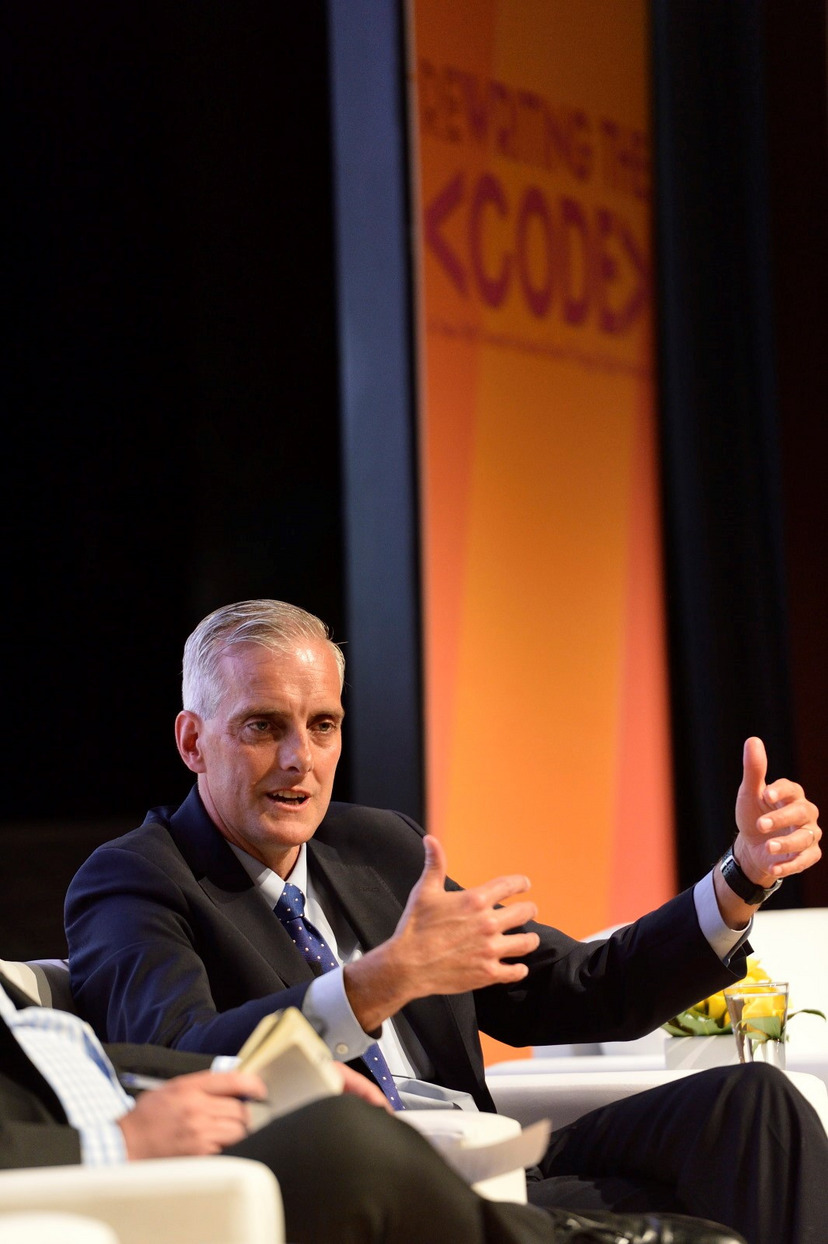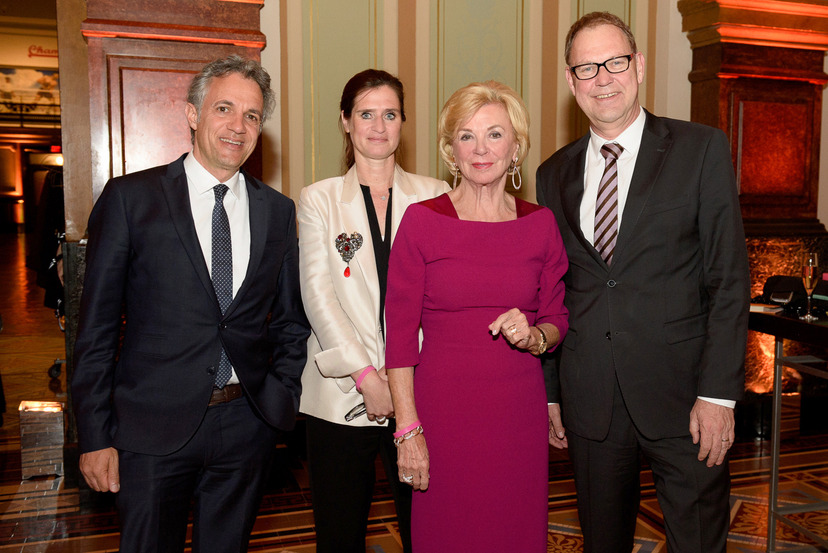As in previous years, the annual conference took place on the sidelines of the IMF and World Bank Spring Meetings in Washington, DC. Bertelsmann Foundation Chairman and CEO Aart De Geus and Liz Mohn, Vice-Chairwoman of the Bertelsmann Stiftung's Executive Board, were in attendance on April 19, as well as distinguished guests from the diplomatic community, U.S government, think tanks and academia.
"The technological transformation is one of the big challenges facing the country, in fact, the world," McDonough said in a conversation with Demetri Sevastopulo, Washington bureau chief of the Financial Times. "Computers now are so fast and so prevalent that automation and even artificial intelligence now is on this accelerated timeline. We are going to be confronted with pretty substantial displacement questions for American workers. Washington is a little bit paralyzed on this question on the very macro level."





